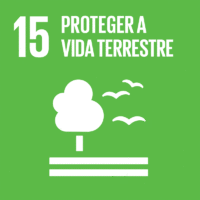Ciência_Iscte
Publicações
Descrição Detalhada da Publicação
Urban green space: creating a triple win for environmental sustainability, health, and health equity through behavior change
Título Revista
International Journal of Environmental Research and Public Health
Ano (publicação definitiva)
2019
Língua
Inglês
País
Suíça
Mais Informação
Web of Science®
Scopus
Google Scholar
Esta publicação não está indexada no Google Scholar
Abstract/Resumo
Urbanization, costs of green space maintenance, and diminishing connection between people and nature all exert pressures on urban green space. This is regrettable as green space has the potential to create wins for environmental sustainability, health, and health equity. This paper explores this potential triple win and investigates how to increase the use of urban green space through behavior change. A narrative literature review was conducted and was supplemented with literature suggested by experts. Results show that creating well-designed green spaces and stimulating people to use them can indeed deliver this triple win. Providing accessible, attractive, well-maintained green space with room for socialization, and where people feel safe, may increase the opportunity and motivation of people to use it more often. Informing and educating people and organizing activities may increase capability (and motivation) to use green space. Since the use of green space depends on life stage, lifestyle factors and individual values, it is important to involve potential users in its design. We recommend a specific focus on those groups who may benefit most from the use of green space. More evaluation is needed to inform effective green space interventions and to assess related economic, social, and environmental benefits.
Agradecimentos/Acknowledgements
--
Palavras-chave
Green space,Health,Environmental sustainability,Health equity,Behavior change
Classificação Fields of Science and Technology
- Ciências da Terra e do Ambiente - Ciências Naturais
- Ciências Biológicas - Ciências Naturais
- Ciências da Saúde - Ciências Médicas
Registos de financiamentos
| Referência de financiamento | Entidade Financiadora |
|---|---|
| 667364 | Comissão Europeia |
| UID/PSI/03125/2013 | Fundação para a Ciência e a Tecnologia |
Contribuições para os Objetivos do Desenvolvimento Sustentável das Nações Unidas
Com o objetivo de aumentar a investigação direcionada para o cumprimento dos Objetivos do Desenvolvimento Sustentável para 2030 das Nações Unidas, é disponibilizada no Ciência_Iscte a possibilidade de associação, quando aplicável, dos artigos científicos aos Objetivos do Desenvolvimento Sustentável. Estes são os Objetivos do Desenvolvimento Sustentável identificados pelo(s) autor(es) para esta publicação. Para uma informação detalhada dos Objetivos do Desenvolvimento Sustentável, clique aqui.

 English
English




